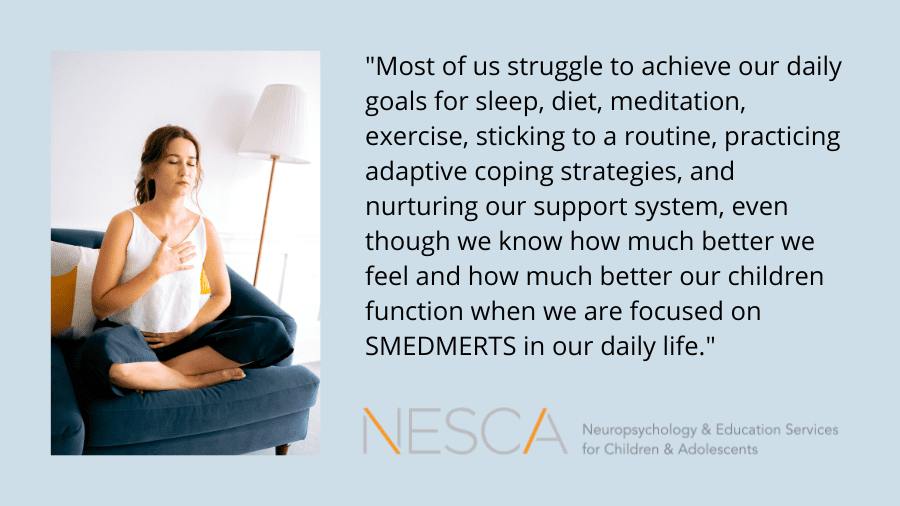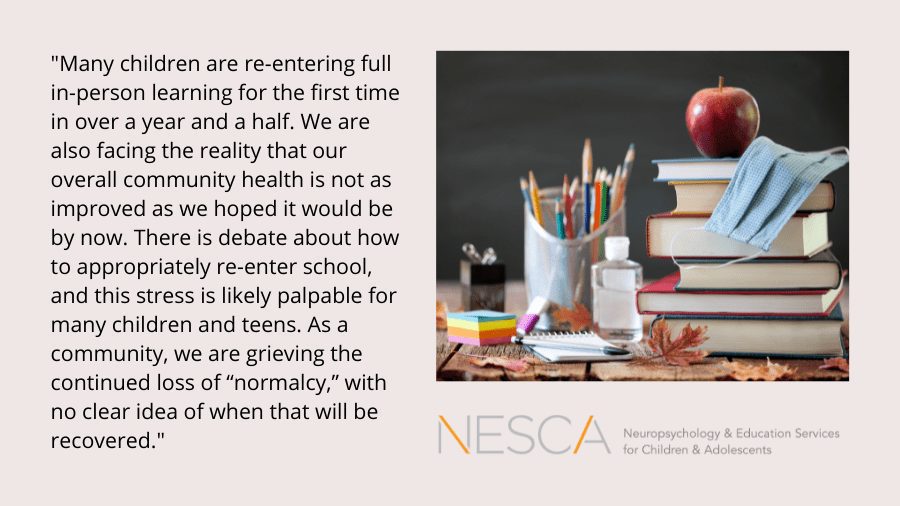
 By: Kristen Simon, M.Ed, Ed.S
By: Kristen Simon, M.Ed, Ed.S
Transition Specialist; Psychoeducational Counselor
As the countdown to Summer begins post April vacation, teens are getting excited for this season of rest, with more time to socialize and spend their days doing the things they want to do. While the first two weeks tend to be filled with high energy and plans, as the summer continues, the energy starts to slow down and boredom sets in. This part of the summer is a great time for adolescents to lean into building executive functioning skills that they may not have had time to practice fully during the school year. And the planning to do so should begin now, prior to the summer, instead of introducing this when they already feel unmotivated.
Executive dysfunction is supported through the school year with structure, routines, consistent visual schedules, online calendars, reminders, and many other external supports. As noted in previous blog posts for students with executive functioning challenges, the focus during the school year can easily fall into a pattern of “putting out fires” or providing intense support to catch up on never-ending assignments, instead of proactive skill building. The summer offers a low-pressure environment for students to practice planning, organizing, following through, and self-monitoring.
Some ways to practice and build these skills might include:
- Manage their own schedule. Have your adolescent practice keeping a weekly schedule. Teens can print off a blank weekly schedule or utilize a digital version to list what needs to be accomplished each week (work, appointments, chores, exercise, social, hobbies, small goals) and plug these into a weekly checklist or visual calendar. At the end of each week, teens can reflect on how much they were able to follow the system they tried and what obstacles got in the way of anything they didn’t accomplish.
- Practice setting alarms. Even if it’s for 10:15 AM (or later) and actually waking up at the time they needed to is important all year long. Allow them to troubleshoot if they sleep in, including what routine can they shift from the night before to meet this?
- Set their own appointments. Is there a dentist appointment that needs to be made or a car service that family needs completed? Have your teen take ownership of calling or going online to make the appointment, tracking the appointment, and following through with going to the appointment.
- Household chores. Ask your teen to take ownership of one part of the home (e.g., mowing the lawn). Work to schedule out how often throughout the summer this job needs to be completed and set a plan for how to follow through with this responsibility.
- Make a meal for the family. Following through with all the steps included (finding a recipe, budgeting, food shopping, prepping, managing the timing of each item that needs to be cooked) is a great way to practice executive functioning skills.
- Get a summer job. Working is a great way to build many executive functioning and self-determination skills for teens. Not only does it add structure to the week, it also helps with regulation and provides social opportunities.
Summer is a great time to build executive functioning skills for school but also life. If you’re interested in hearing more about NESCA’s executive functioning coaching session or real-life skills coaching, visit: https://nesca-newton.com/coaching-services/ or complete our Intake Form at: www.nesca-newton.com/intake.
About the Author
Kristen Simon, M.Ed, Ed.S, has worked with transition-aged youth as a licensed School Psychologist for more than a decade. She has extensive experience working with children and adolescents with a range of learning and social/emotional abilities. Kristen’s strengths lie in her communication and advocacy skills as well as her strengths-based approach. She is passionate about developing students’ self-awareness, goal-setting abilities, and vision through student-centered counseling, psychoeducation, social skills instruction, and executive functioning coaching. Mrs. Simon has particular interests working with children and adolescents on the Autism spectrum as well as individuals working to manage stress or anxiety-related challenges.
extensive experience working with children and adolescents with a range of learning and social/emotional abilities. Kristen’s strengths lie in her communication and advocacy skills as well as her strengths-based approach. She is passionate about developing students’ self-awareness, goal-setting abilities, and vision through student-centered counseling, psychoeducation, social skills instruction, and executive functioning coaching. Mrs. Simon has particular interests working with children and adolescents on the Autism spectrum as well as individuals working to manage stress or anxiety-related challenges.
Mrs. Simon is an expert evaluator and observer who has extensive working knowledge of the special education process and school-based special education services, particularly in Massachusetts. She has been an integral part of hundreds of IEP teams and has helped to coordinate care, develop goals, and guide students and their families through the transition planning process. Mrs. Simon further has special expertise helping students to learn about their diagnoses and testing and the IEP process in general. She enjoys assisting students, families, and educators in understanding a student’s disability-related needs as well as the strategies that can help the student to be successful in both academic and nonacademic settings. Mrs. Simon has often been a part of teams in the years when students are initially participating in transition services, and she has helped countless students to build the skills necessary to be part of their first team meetings. She is committed to teaching students—as well as parents and educators—how to participate in student-centered team meetings and the IEP processes.
At NESCA, Mrs. Simon works as a transition specialist and psychoeducational counselor. She works with adolescents, their families, and their school communities to identify and build the skills necessary to achieve their postsecondary goals. Mrs. Simon provides transition assessment (including testing, functional evaluations, and observations), program observations and evaluations, case management and consultation, and individualized counseling and skills coaching.
To schedule an appointment with one of NESCA’s transition specialists, please complete our online intake form.
NESCA is a pediatric neuropsychology practice and integrative treatment center with offices in Newton, Plainville, and Hingham, Massachusetts; Londonderry, New Hampshire; and staff in the greater Burlington, Vermont region and Brooklyn, New York, serving clients from infancy through young adulthood and their families. For more information, please email info@nesca-newton.com or call 617-658-9800.





 neuropsychologist who has been practicing for almost 20 years. In 1996, she jointly founded the Children’s Evaluation Center (CEC) in Newton, Massachusetts, serving as co-director there for almost ten years. During that time, CEC emerged as a leading regional center for the diagnosis and remediation of both learning disabilities and Autism Spectrum Disorders.
neuropsychologist who has been practicing for almost 20 years. In 1996, she jointly founded the Children’s Evaluation Center (CEC) in Newton, Massachusetts, serving as co-director there for almost ten years. During that time, CEC emerged as a leading regional center for the diagnosis and remediation of both learning disabilities and Autism Spectrum Disorders.
 attention deficit disorders, communication disorders, intellectual disabilities, and learning disabilities. She particularly enjoys working with children and their families who have concerns regarding an autism spectrum disorder. Dr. Milana has received specialized training on the administration of the Autism Diagnostic Observation Schedule (ADOS).
attention deficit disorders, communication disorders, intellectual disabilities, and learning disabilities. She particularly enjoys working with children and their families who have concerns regarding an autism spectrum disorder. Dr. Milana has received specialized training on the administration of the Autism Diagnostic Observation Schedule (ADOS).
 Londonderry, NH office. She specializes in the evaluation of anxious children and teens, working to tease apart the various factors lending to their stress, such as underlying learning, attentional, or emotional challenges. She particularly enjoys working with the seemingly “unmotivated” child, as well as children who have “flown under the radar” for years due to their desire to succeed.
Londonderry, NH office. She specializes in the evaluation of anxious children and teens, working to tease apart the various factors lending to their stress, such as underlying learning, attentional, or emotional challenges. She particularly enjoys working with the seemingly “unmotivated” child, as well as children who have “flown under the radar” for years due to their desire to succeed.
 (Movement Matters, 2020).
(Movement Matters, 2020). pediatric settings. Maddie received her undergraduate degree in Exercise Science/Kinesiology at The College of Charleston in South Carolina and earned her Doctorate degree in Occupational Therapy from The MGH Institute of Health Professions in Boston.
pediatric settings. Maddie received her undergraduate degree in Exercise Science/Kinesiology at The College of Charleston in South Carolina and earned her Doctorate degree in Occupational Therapy from The MGH Institute of Health Professions in Boston.

Connect with Us